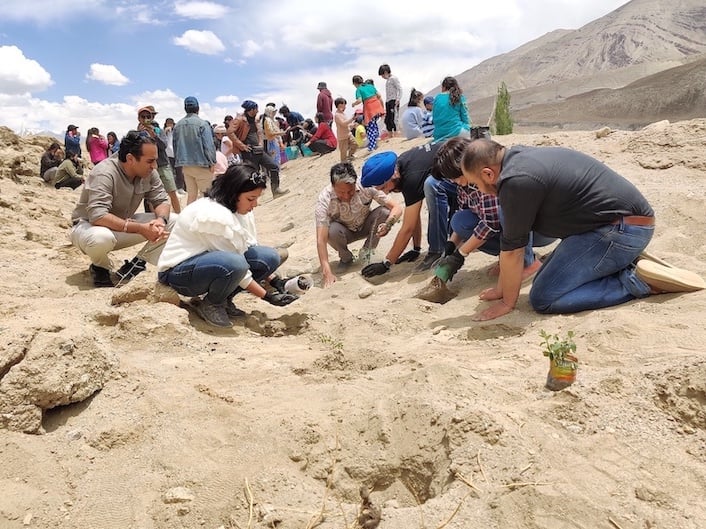The newly formed union territory (UT) of Ladakh is known for its arid yet beautiful mountains, picturesque passes and Buddhist monasteries. The UT is popular among the bikers who ride all the way from the plains to experience the scenic yet rock roads in the region. The UT because of its unique topography is considered to be an eco-sensitive zone. As a result of this, the development of the area is stagnated for many years.
With more focus and innovations in sustainable development, the corporates are now utilizing their resources under CSR in Ladakh with the support of the government. In this context, let us look at the top CSR projects in Ladakh.
Obeetee Carpets Weaver Training Programme for women artisans
Obeetee Carpets, a hand-woven rug company announced in March this year that it has successfully concluded a 30-day weaver training program for women artisans of Ladakh. The training program was a government-led initiative to empower women artisans in Ladakh and provide them with an opportunity to learn new skills during the winter season, when they have downtime from household work.
The training program was divided into two parts, with 15 days of training conducted in Leh and another 15 days in Kargil. The local artisans were trained in Tibetan knotting techniques by master weavers. Kanhaiya Lal, Obeetee Carpets’ Tibetan Master Weaver, and Ramesh Maurya, Obeetee Carpets’ Persian weaver, led the training program.
The training program was aimed to create a community of skilled artisans who can produce high-quality, hand-woven rugs that meet international standards. Through this program, Obeetee Carpets is trying to support the local economy of Ladakh and provide sustainable employment opportunities for women artisans.



